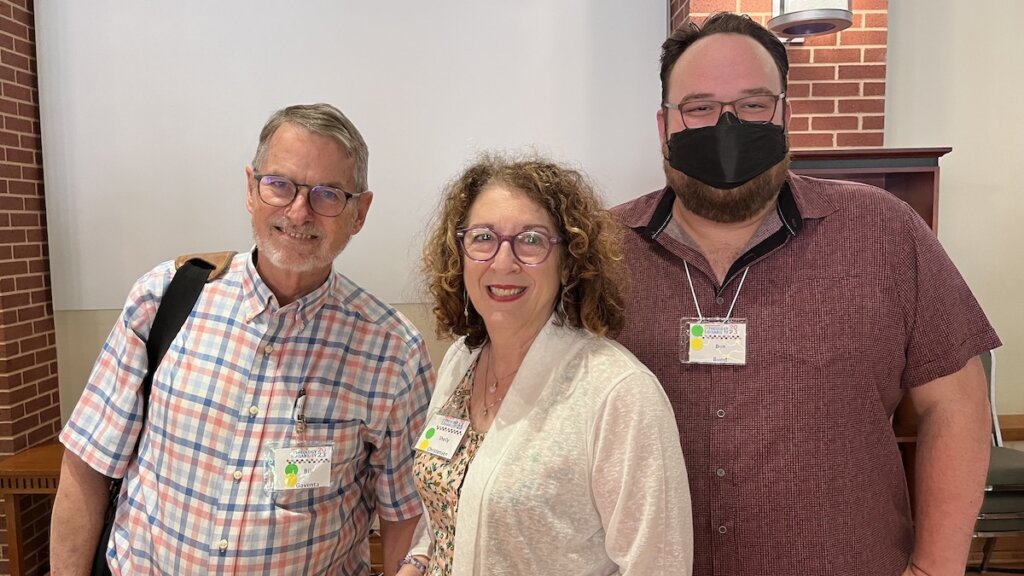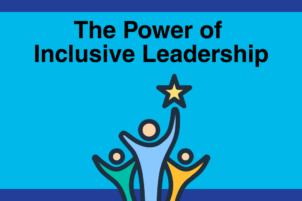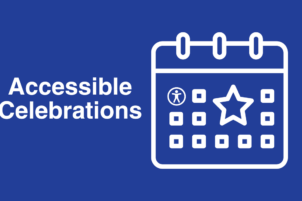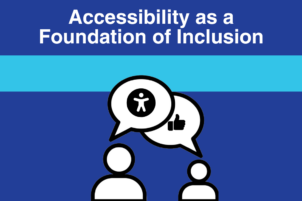 The Faith Inclusion and Belonging Team traveled to Waco, TX to participate in the Institute on Theology and Disability at Truett Seminary at Baylor University at the end of June. Founded in 2010 by RespectAbility board member, Bill Gaventa, the Institute annually gathers theologians, researchers, thought leaders, practitioners, and clergy to learn from each other.
The Faith Inclusion and Belonging Team traveled to Waco, TX to participate in the Institute on Theology and Disability at Truett Seminary at Baylor University at the end of June. Founded in 2010 by RespectAbility board member, Bill Gaventa, the Institute annually gathers theologians, researchers, thought leaders, practitioners, and clergy to learn from each other.
The Institute is where you can get a cup of coffee or a glass of cold brew and an enormous blueberry muffin from Bitty and Beau’s while listening to a world renowned scholar like Dr. Hans Reinders. You can grab a plate of Tex-Mex food from a buffet and have a bite with friends and colleagues from Canada, New Jersey, and Brisbane, Australia. You can get to know people in the evenings, sharing stories and a bottle of wine.
RespectAbility is an in-kind sponsor of the Institute and I am on the Coordinating Council that plans and organizes it. Our team participated in two multi-faith panels: Reflections on Theology, Disability, and Belonging; and The Practice of Interfaith Inclusion: How’s it Working in Your Faith Tradition? Associate Ben Bond moderated both panels as presenters shared Muslim, Jewish, Buddhist, Christian, and Hindu perspectives on disability and community.
Rabbi Julia Watts Belzer returned this year for a plenary based on her upcoming book, Loving Our Own Bones: Disability Wisdom and the Spiritual Subversiveness of Knowing Ourselves Whole. She describes her book as “a spiritual companion and a call to uproot ableism.”
In her talk, Rabbi Watts Belzer described Moses’ reluctance to lead the Israelite people out of Egypt. We know this story well. In Exodus 4:10, Moses protests that he can’t do the job. He declares he is not someone of words; he is heavy of tongue. God isn’t having it and names Aaron, Moses’ brother, to be his voice, an act many consider to be the first disability accommodation in the Torah.
Rabbi Watts Belzer said, “It’s a powerful moment in the Torah, one that recognizes disability as part of the fiber of Moses’ very being.” But she asks, “What happens in the 40 years that follow? Does anyone else recognize Moses’ disability? I don’t think so.”
I am still reflecting on this passage, one that I’ve quoted so many times in my own writing and presentations. I am curious about how ableism and stigma surrounded the greatest Jewish leader. I can’t wait to read her new book.
Earlier, I mentioned Bitty and Beau’s of Waco. Mark Sauer is the owner and described Bitty and Beau’s as a coffee shop on a mission. It’s a workplace dedicated to radical inclusion of people with intellectual and developmental disabilities. Bitty and Beau’s team members sold beverages and bakery goods every day at the Institute, wearing their Radical Inclusion T-shirts.
I bring the ideas, wisdom, and knowledge, new contacts, and expanding network from the Institute back to the Faith Inclusion and Belonging department, where Ben and I will weave it all into our joyful work.







